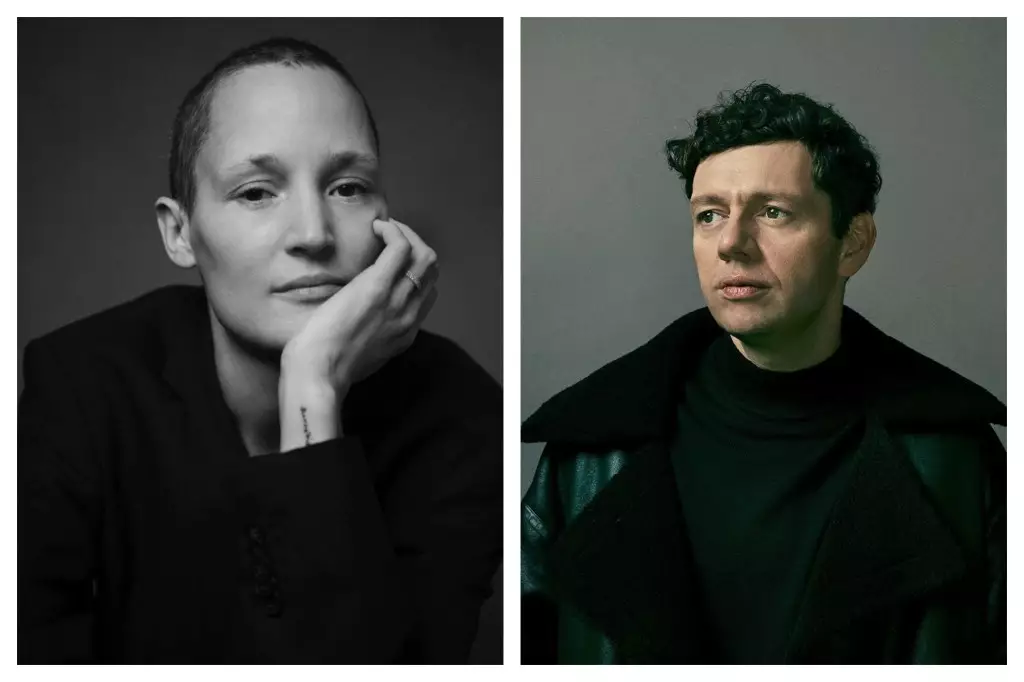In an ambitious cinematic endeavor that has the potential to redefine how we view literary adaptations, “The Idiots” emerges as a gripping narrative, interweaving the realms of love, risk, and desperation. Featuring talented actors Vicky Krieps and Christian Friedel, in addition to the promising Aimee Lou Wood and Johnny Flynn, this Polish production directed by Małgorzata Szumowska and Micha Englert beckons us to look not just at a tale of famous figures but to delve deeply into the tumultuous relationship that catalyzed a literary classic.
At the core of this cinematic tapestry is Andrew D. Kaufman’s novel, “The Gambler Wife: A True Story of Love, Risk, and the Woman Who Saved Dostoyevsky.” This angle offers not merely a retelling of Fyodor Dostoyevsky’s genesis of “The Idiot,” but rather an intimate portrayal of the turbulent romance between Dostoyevsky and his wife, Anna. Traversing through their honeymoon adventure in Baden, where the thrill of gambling unravels their lives, the film reclaims the depths of human emotion through financial ruin and love’s fraying threads.
A Cast of Contradictions
The selected cast not only comprises actors with stellar resumes but also individuals who have showcased remarkable versatility in their craft. Johnny Flynn’s earnestness as Dostoyevsky contrasts with Aimee Lou Wood’s vibrant portrayal of Anna. Krieps and Friedel’s supporting roles are critical; they promise to add layers to an already complex narrative. This casting choice bolsters the perspective that both actors can express vulnerability and strength, which adds fitting dimensions to the portrayal of a relationship marred by passion and peril.
The decision of Szumowska and Englert to work closely with co-writers Kasper Bajon and Bríd Arnstein sets a positive precedent. Their previous collaborations suggest a palpable synergy that has the potential to heighten their storytelling abilities. Szumowska’s impressive accolades, including multiple Silver Bear wins, indicate her deep understanding of the intimate and brooding aspects of human relationships. Their collective vision might just create a threshold where old literature meets contemporary cinematic prowess, albeit with fresh, audacious risks.
Implications of Adaptation
However, the film embodies more than just a narrative shift; it also represents a broader commentary on the role of adaptation in cinema. “The Idiots” challenges audiences to confront the intricacies of historical relationships while questioning the value of personal failings juxtaposed against artistic triumphs. The metamorphosis from a commercial flop to a revered literary piece exemplifies how cultural perceptions can evolve, inviting viewers to reflect on the nature of art itself.
The production’s choices, spearheaded by companies such as Hype Studios and Gold Rush Pictures, highlight an adventurous spirit in the film industry. As we witness a growing trend of exploring classical literature through a modern lens, “The Idiots” strides boldly into this landscape. In doing so, it mirrors Dostoyevsky’s own unrelenting pursuit of truth amid chaos, propelling the narrative into a dialogue that resonates far beyond 19th-century Russia.
In an era where relationships are often revisited and revered through social media, the complex emotional web woven within “The Idiots” reaffirms that love remains as intricate as ever—a testament to our unrelenting search for connection amid life’s gambling stakes. The anticipation of this film serves as a powerful reminder that the consequences of love, intertwined with the thrill of chance, continue to shape our very existence.


Leave a Reply